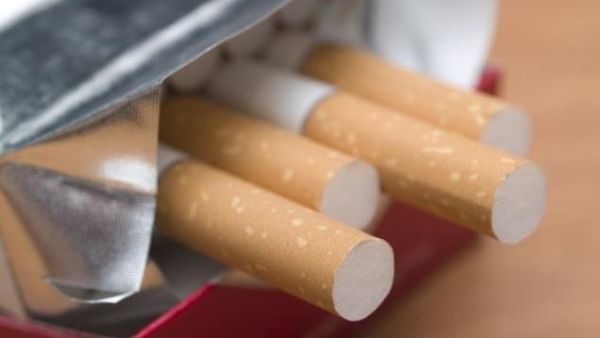A cigarette shortage was reported by shops and supermarkets yesterday after it was confirmed that Bahrain had raised import duty on alcohol and tobacco – a move that is expected to drive up prices in the market.
Information, Parliament and Shura Affairs Minister and official government spokesman Isa Al Hammadi said the decision was made by Finance Minister Shaikh Ahmed bin Mohammed Al Khalifa and should have been implemented on Friday. However, it was only confirmed by the Cabinet yesterday and suppliers said they had received no prior notification.
Mr Al Hammadi told journalists he didn’t know how much import duties were being raised as he addressed a Press conference after the Cabinet meeting yesterday. “The decision has automatically gone into effect, but I am not aware about the percentages,” said Mr Al Hammadi.
However, sources told the GDN the import tariff for alcohol was now 225 per cent, up from 125pc previously, while a Health Ministry official said import duty on tobacco had increased from 100pc to 200pc. “Our company system for all import orders is connected to Bahrain Customs and when we checked on Sunday for our transaction, it showed a 225pc import duty on alcoholic beverages,” an alcohol retailer told the GDN on condition of anonymity.
“For all the new orders we place from now, the new tariffs will have to be paid by us.” He added price increases were not expected for existing stock, but added the higher import cost for new shipments would likely be passed on to customers. “Once the new stock is on the shelves, customers and our clients can expect an increase in price,” he said.
Anticipated
He told the GDN that people had been anticipating the move since last week, but warned an alcohol black market could now develop. “The sales are good now, but what we fear is that with so many people stocking up it could lead to alcohol being sold on the black market once prices increase,” he said.
Another alcohol retailer, also speaking on condition of anonymity, said companies had been surprised by the large increase in import duties. He added it was too early to predict what effect it would have on prices, which are also expected to increase at hotels and restaurants.
“At this moment, we have no clue what the impact of the hike in import duties would be,” he said. “But it is guaranteed that, at some point, the consumer will have to pay more.” Bahrain Four Star Hotels Committee chairman Hamad Al Halwachi told the GDN it could impact the hospitality sector, which would have to raise prices.
“The decision will help Bahrain, but for the hospitality sector in general it will have drastic impact with the customer paying more in the end,” he said. “The government has already increased the hotel levy from 5pc to 10pc and now hoteliers have to further adjust prices to cover the extra cost.”
The GDN learnt passengers at Bahrain International Airport were being restricted to one litre of duty free alcohol, with those bringing in more forced to pay duty on additional supplies. A Jawad Business Group spokesman revealed there had been a surge in cigarette sales since the start of the week, while customers at sheesha cafes can also expect to pay more. “We have existing tobacco stock, but once that is over we have to purchase from suppliers at new prices,” said a Bahraini coffee shop owner in Hamala.
However, Health Ministry chief nutritionist Dr Nadia Ghareeb said the decision provided a financial incentive to not smoke or drink alcohol, providing potential health benefits. Meanwhile, Bahrain Chamber of Commerce and Industry food and agriculture committee chairman Khalid Al Amin welcomed the move as a positive money-saver for the government.
“It is important that things change around us because of the low oil prices and their effect on regional economies,” he said. “Import duties are still low compared with other countries and we need to develop revenues resources now to cover the budget deficit.”
Bahrain’s projected budget deficit for 2015 and 2016 has widened from BD3 billion to BD5bn as a result of low oil revenues, prompting a major government cost-cutting drive. Electricity and water rates will increase from March 1 for all expatriates and the private sector, while fuel prices went up last month and meat subsidies were lifted on October 1.
By Sandeep Singh Grewal








